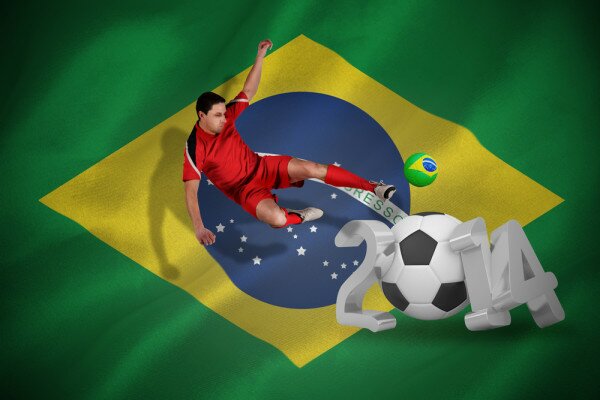
International footballers’ names and World Cup related mobile apps are being exploited by cybercriminals in the lead up to the tournament due to start tomorrow, according to top internet security firms.
In a report by McAfee, the security firm compiled a list of footballers’ names which when searched for online return the highest incidence of landing on malware infected sites – dubbed the “Red Card Club”.
The report reveals searches for Portuguese player Cristiano Ronaldo have the highest risk of landing on websites which test positive for threats such as spyware, adware, spam, phishing, viruses and other malware, with a 3.76 per cent risk rate.
Argentinian player Lionel Messi proved to be the second most risky footballer to search for online, with a risk factor or 3.72 per cent, while Spain’s Iker Casillas ranked in third place with 3.34 per cent of searches returning infected websites.
McAfee said searches for screensavers and videos of the footballers in action were the most dangerous type of content to search for, with search terms including the words “free download” returning the most virus prone content.
“We want to caution consumers through the McAfee “Red Card Club” to not to let their guard down as they join in all the excitement surrounding the World Cup online,” said David Freer, vice president of consumer for the Asia Pacific region at McAfee.
“Be especially wary of videos promising to show your idol’s skills as you might get more than you bargain for.
“Cybercriminals will definitely try to capitalise on ‘World Cup fever’, so it’s wise not to be complacent by downloading content that might put you at risk.”
Other dangerous names to search in the lead up to the World Cup include Brazil’s Neymar, Algerian Karim Ziani, France’s Karim Benzema, Brazilian player Paulinho, Uruguay’s Edinson Cavani, Spaniard Fernando Torres, Belgian Eden Hazard, and Spain’s Gerard Piqué, McAfee said.
Similarly, security firm Avast! conducted research into the myriad of mobile applications available related to the World Cup, finding many comprised security threats.
One app the firm highlighted as a fake was “Corner Kick World Cup 2014”, which displayed a blank screen and adverts.
“This is unfortunately a quite common and sneaky way for developers to make some money. With applications like this, the only person who benefits from them are the developers. They may get some money if you actually click on the ads their apps display,” Avast said, adding the developer of the app has been blocked in the Avast! system.
The company flagged a second app, called “Fifa 2014 Free – World Cup”, which Avast called “at the very least, suspicious”, while the app “Football World Cup 14” requests a range of information unrelated to football or the app, such as a user’s location, call log, and other accounts on the mobile phone.
“Apps that display ads are not necessarily malicious. Plenty of apps, especially free apps, are funded by ads. They can, however, be annoying, particularly when they don’t go away and prevent you from using the app itself. Apps that access more information from your phone than they need to function seem harmless, especially since there is no visible evidence of this happening, but they can cause more harm than you may think,” Avast! said.
“We recommend you to take a closer look at the apps you download during tournament time, be it gaming apps, live streaming apps or apps that allow you to bet for your national team, to make sure you stay safe and as ad free as possible!”
Image courtesy of Shutterstock.

















